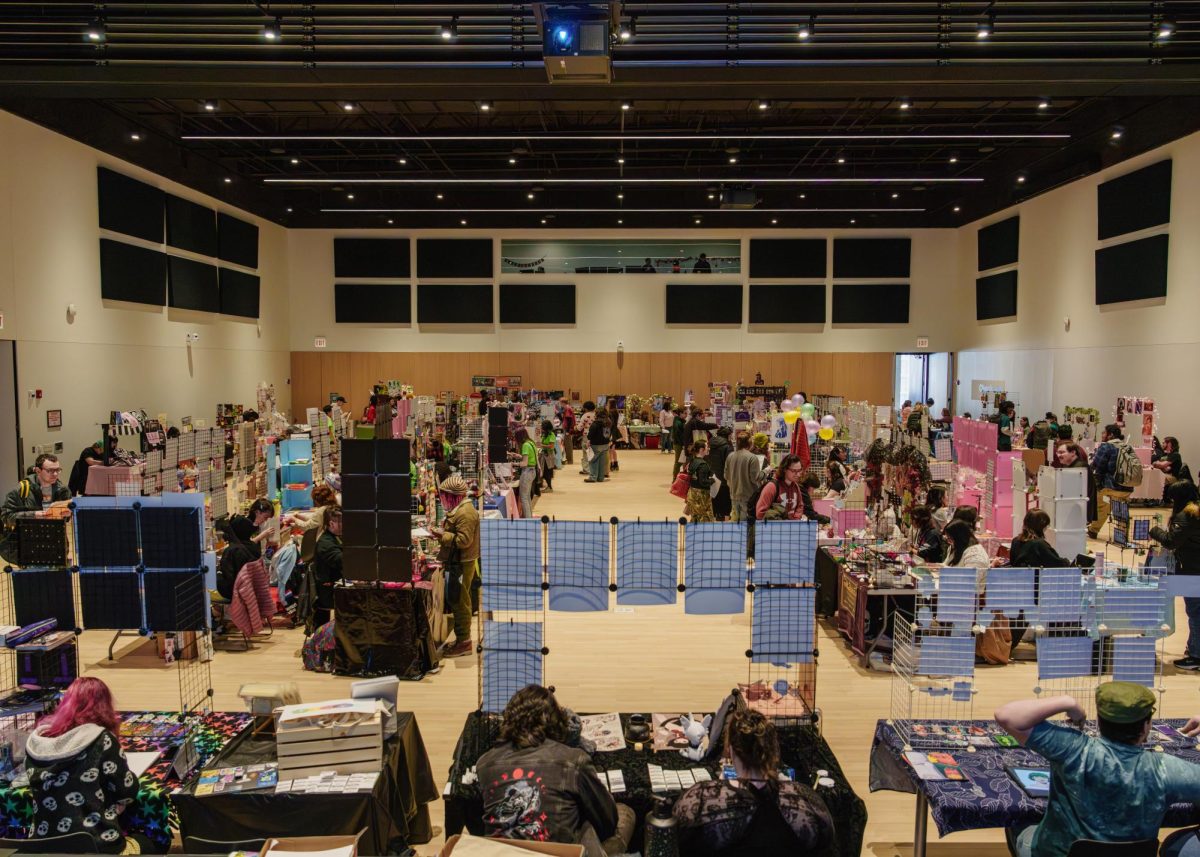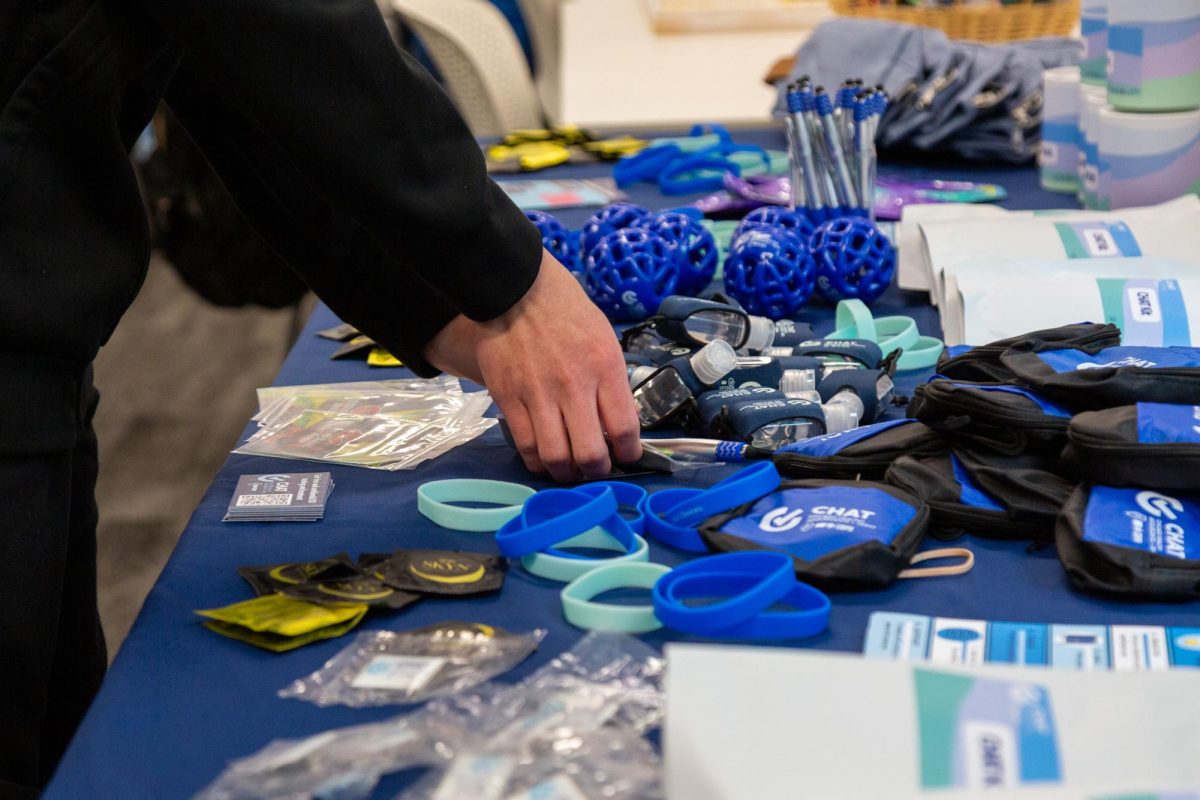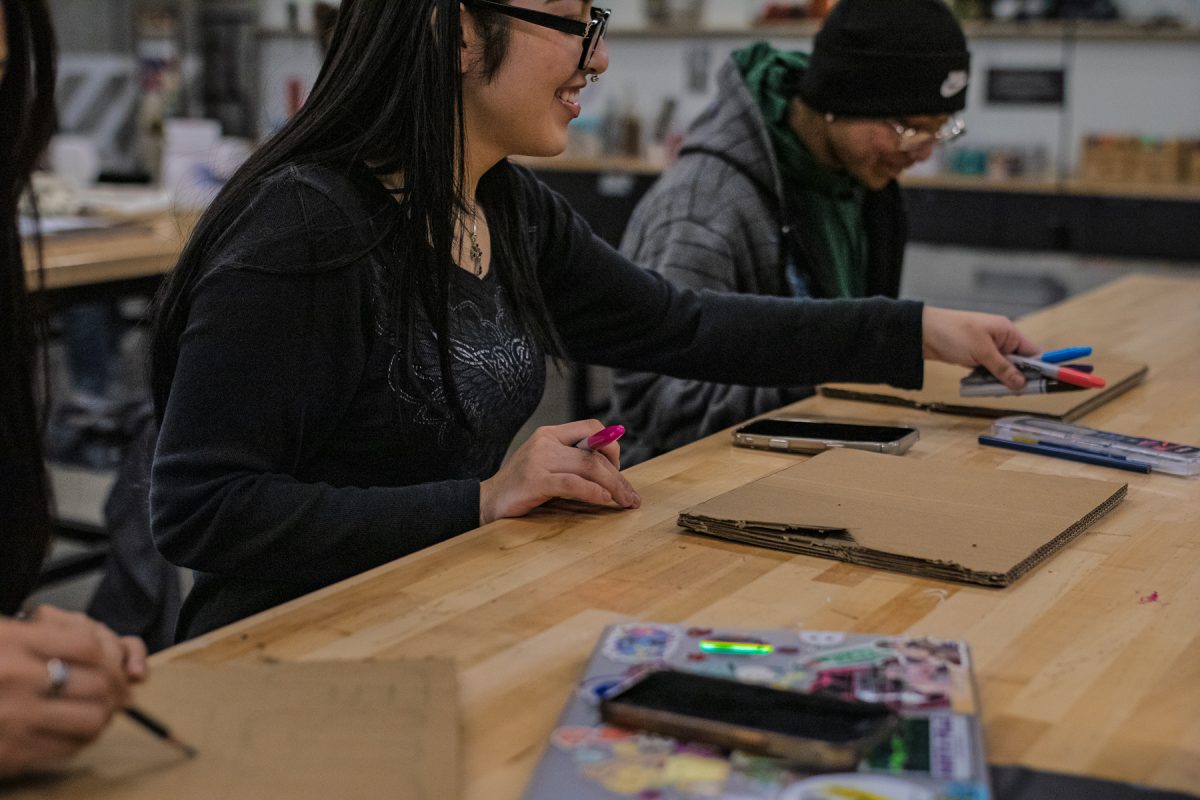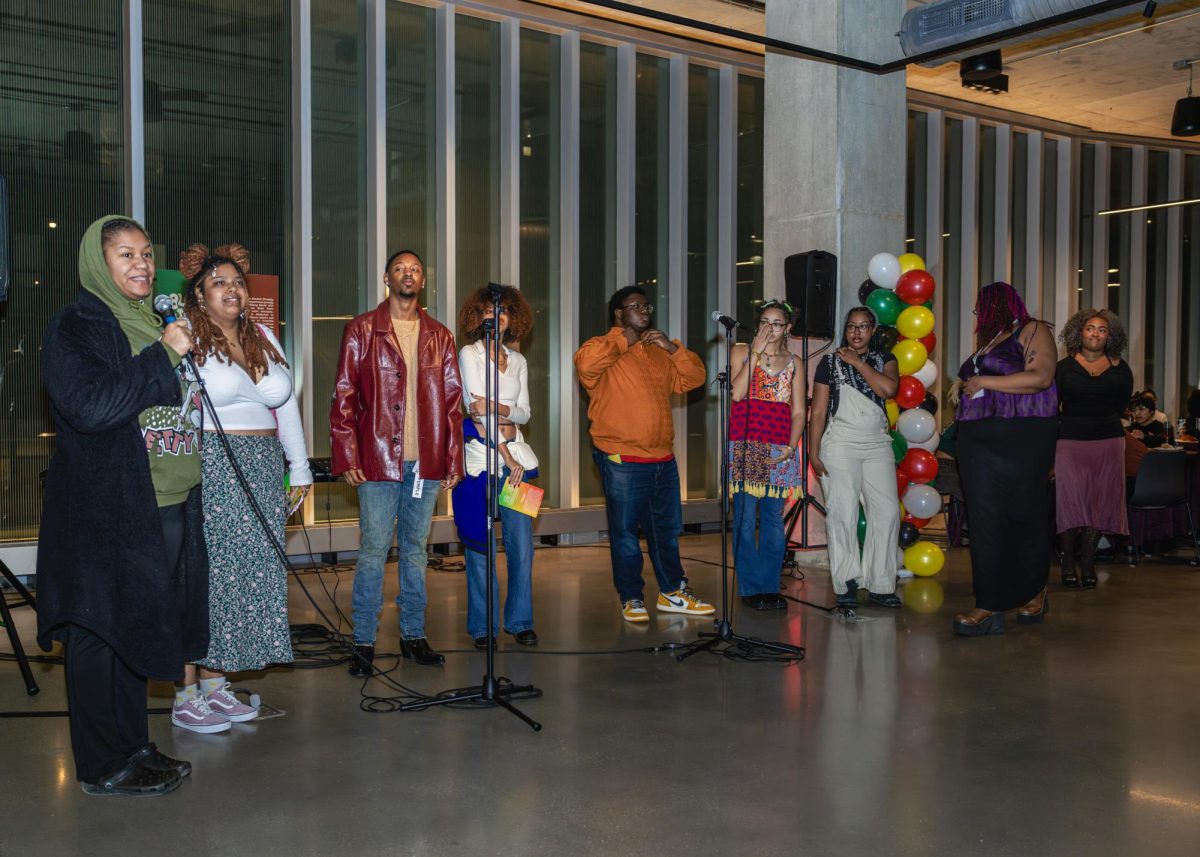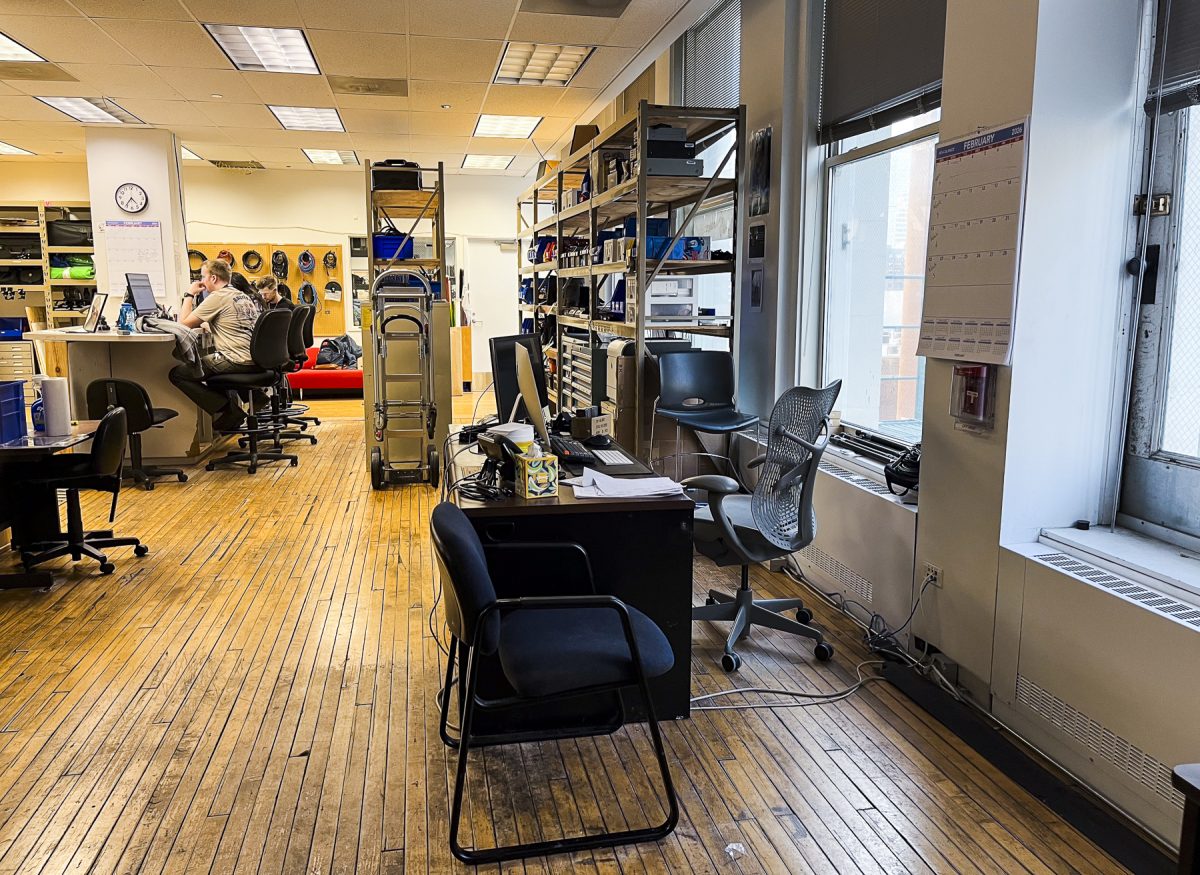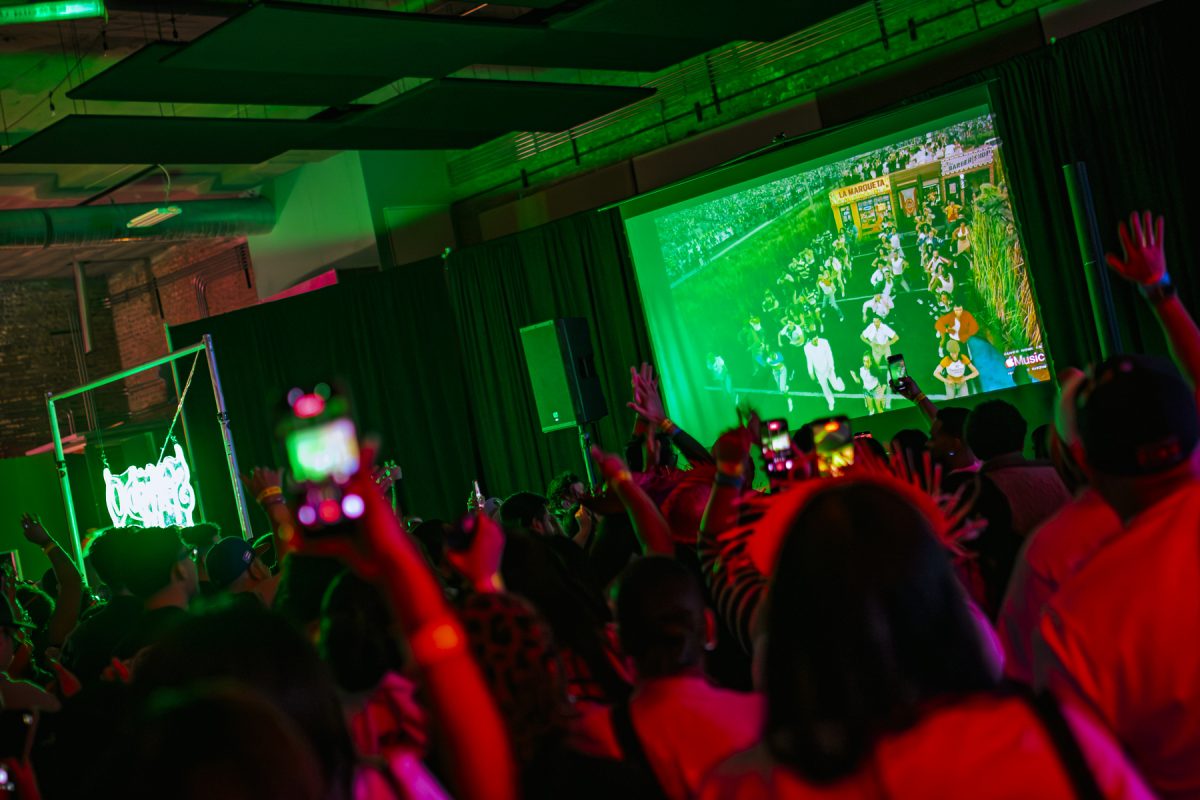Ishara Kelsaw-Fletcher, a senior fashion merchandising major, said her daily average screen time is usually 12 to 14 hours.
“I’m on my phone a lot, trying to work at any point I can,” Kelsaw-Fletcher said. “I’m even on my phone working on Canva or saving articles on top of doom scrolling.”
In an attempt to spend less time on her phone at the end of this semester, she deleted apps and consistently puts her phone on do not disturb. Sometimes she even lets her phone battery drain on purpose.
With the end of the semester approaching, some students have taken to minimizing distractions from studying and reducing their screen time in order to maximize their study time and stay productive.
In a study published by Frontiers in Computer Science, participants with limited smartphone accessibility spent less time on their mobile devices. But it didn’t mean they stayed off screens altogether because many just switched to laptops.
Laurence Minsky, a professor in the School of Business and Entrepreneurship who teaches “Social Media Content,” said social media apps are so attention grabbing or addictive due to the algorithms, which are designed to give users “a little dopamine rush,” he said. This reinforces what they’re looking for “in little bites.”
Minsky said that if students are on social media a lot of the time, or more than they should be, setting time restrictions on devices can help minimize distractions. However, that depends on what other things distract them. He gave the example of people consistently going to their kitchen to snack as a form of procrastination.
Shelby Fish, a senior acting major, said they enjoy reading when they don’t want to be in front of a screen, playing guitar or catching a movie. “I normally go see a movie or something because it makes me excited about it again,” they said, referencing their acting work.
Fish said their daily average screen time ranges between seven to nine hours. The time spent on their phone is “half business, half doom scrolling,” with people consistently messaging them about audition opportunities and falling asleep to YouTube videos, she said.
With finals week coming up, Fish said she’s been on her phone less due to rehearsals or printing out scripts instead of reading them digitally. To minimize distraction, she said she would give herself 20 to 30 minutes after rehearsals to scroll on her phone, but after that, it’s back to work. However, because she sets her own timer and doesn’t rely on an external resource to restrict app usage, the amount of scrolling time ends up being a “loose 30 minutes,” she said.
Abi Hamilton, a sophomore film and television major, said that on average she spends 10 to 12 hours a day on her phone. She said she frequently listens to music while working in order to calm herself down, so she has to be on her phone and doesn’t often try to lower the time spent on it.
“I’ll put my phone on ‘do not disturb’ but then catch myself checking it,” Hamilton said. “Maybe that’s a sign that I do need to tone down on the screen time.”
Besides her phone, she said she talks or watches TV with her roommate as another form of procrastination. However, she said she will also clean, which in turn, lowers her screen time.
For students trying to lower their screen time, Minsky said he recommends using their typical distractions as a reward after increments work.
“Sometimes you do need a little break to come up with something fresh,” he said. “I’m not a big believer in cramming.”
Minsky said breaking down a goal into smaller chunks can make the work more manageable and help retain focus.
Kelsaw-Fletcher was a “really big fan” of the Pomodoro Technique, working in 25-minute intervals with five-minute breaks in between, she said. After four intervals, one is allowed a longer break, about 15 minutes.
Minsky said he thinks students put off final projects because they feel overwhelmed, leading to the search for a distraction. People may also want a distraction if they feel tired, he said, suggesting to take a rest but with a set time limit.
“You’ve got to figure out what’s realistic to get your work done, and then make sure that you budget for that,” Minsky said.
Angel Román, a senior screenwriting major, said he likes to spend some time outside whenever he’s stuck in a rut or needs to feel less overwhelmed.
“Being able to have certain things that draw you back into reality, that puts you in a calm state, I think that’s the only way you’re going to be able to make things you really want,” Román said.
Román said his daily average screen time is about three to four hours, but it typically lowers during finals week. Since so many of his final projects involve writing, he said he needs to keep focused and limit his distractions, often closing himself off in his room with an entire pot of coffee.
“I need to hide my phone,” Román said. “The minute I can see it on my desk, I’m picking it up.”
In addition to having his phone out of sight, he said he likes to keep it on do not disturb mode and will cut himself off from answering messages past 8 p.m..
“Being able to have that boundary for how I want to use my time and where to put my focus has really helped me,” Román said.
He also said spending time with others and receiving feedback on his work has also helped him get through his writing finals.
“That’s the thing that’s going to keep me going, making sure that it stays exciting,” Román said.
Copy edited by Manuel Nocera


